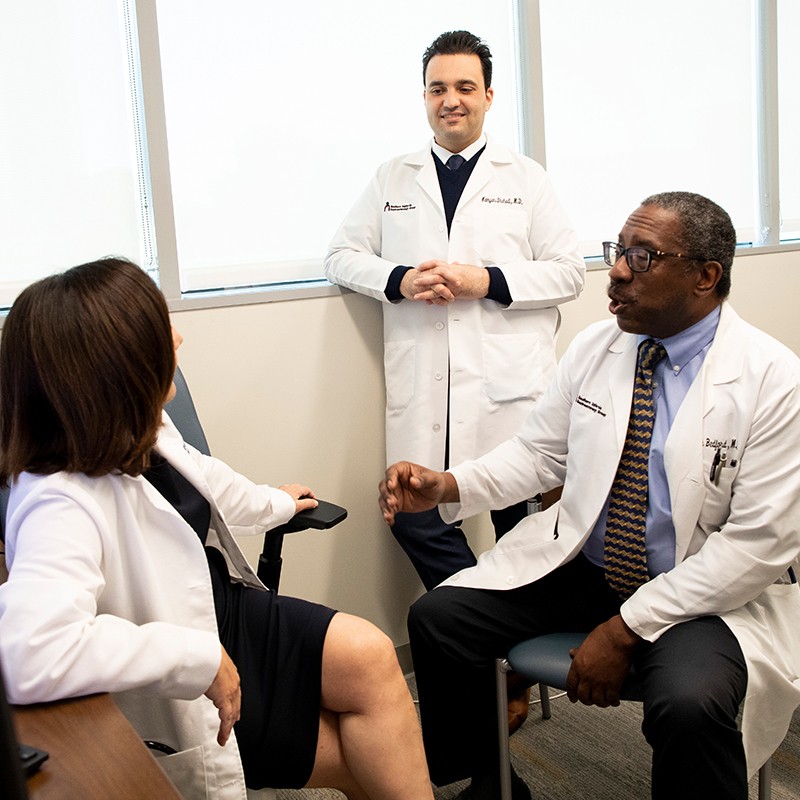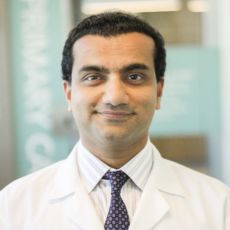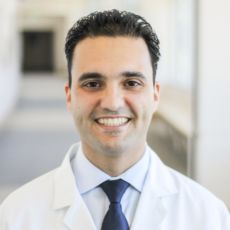Diverticulosis / Diverticulitis

Overview
Diverticulosis and Diverticulitis
Diverticula are small bulges or pockets that can form in the walls of your digestive tract. This occurs when inner layer of the intestines push through weak spots in the outer lining, and this pressure makes them bulge out. They can vary in size from small pea-size bulges to more large bulges and are most commonly found in the colon. While diverticulosis is simply the presence of these diverticula within your digestive tract, diverticulitis is when one ore more of these diverticula are infected and inflamed. Diverticulosis is very common and can be commonly seen in people over the age of 60, however, it can also be seen in younger people. Men may get it more often than women and research shows the condition may be genetic.
Some possible risk factors for diverticulosis and diverticulitis are:
- Being age 40 years old or older
- Male
- Being overweight
- Consumption of low fiber and high fat or red meat at a low-fiber diet and a diet high in fat and red meat
- Lack of exercise
- Family history of diverticulitis
- Chronic constipation
- Use of nonsteroidal anti-inflammatory drugs (NSAIDs) such as aspirin, ibuprofen and naproxen, steroids or opioids
- Smoking
Symptoms
Diverticulosis and Diverticulitis Symptoms
Diverticulosis usually don’t cause symptoms, however, some may experience mild abdominal cramping or bloating and/or constipation. Diverticula may sometimes cause brisk rectal bleeding which would require immediate medical attention.
Diverticulitis symptoms include:
If you are experiencing these symptoms, is important to see your Saint John’s Physician Partners doctor for prompt and accurate diagnosis and treatment and to rule out other conditions, which may mimic or be similar to diverticulitis.
Diagnosis
Diverticulosis and Diverticulitis Diagnosis
Most people with diverticulosis don’t have symptoms and it’s usually found incidentally on imaging or colonoscopy. If you have symptoms of diverticulitis, your doctor will review your medical history and ask you about your current symptoms such as the types of food you eat, bowel movements as well as the medications you take. After a physical exam, the following tests may be recommended:
A blood test
to check for signs of infection
A stool sample
to check for the presence of abnormal bacteria or parasites
A digital rectal exam
to feel for any problems in your anus or rectum
A CT scan
that can show infected or inflamed diverticula as well as the severity of diverticulitis
A sigmoidoscopy or Colonoscopy
which is when a thin flexible tube with a light on the end, and connected to a video camera, is inserted through your rectum for a visual inspection of the full length of your colon
An angiography
is a procedure used when you have heavy rectal bleeding and helps your doctor find where the bleeding is coming from
Complications
Diverticulosis and Diverticulitis Complications
Diverticulitis can be serious and lead to other health complications if not caught early and treated. If you experience any signs and symptoms of diverticulitis, you should see your doctor immediately to verify the cause and receive appropriate treatment.
Treatments
Diverticulosis and Diverticulitis Treatments
Since diverticulosis usually doesn’t have symptoms, you will not need treatment; however, since this can develop to diverticulitis, your doctor may recommend a diet high in fiber as a preventive measure.
Diverticulitis typically requires the use of antibiotics. If your diverticulitis is mild, your doctor may prescribe oral antibiotics as well as taking over-the-counter pain medication as well as following a low-fiber diet until your symptoms improve. You can then start slowly with soft food and then continue with a normal diet that includes high-fiber foods.
If your diverticulitis is severe, and you are having a repeat bout of diverticulitis or have rectal bleeding, your doctor may recommend surgery. Surgery may be part of your treatment plan if you develop complications from diverticulitis which may include perforation.
If your diverticulitis has not responded to other treatment methods or you have multiple attacks, your doctor may decide to do surgery to remove the diseased part of the colon

Abscesses in the Abdomen
Your doctor may drain the fluid in your abscesses with a needle or catheter. However, if draining is not successful, surgery may be used to clean the abscesses and the affected part of the colon removed.
Perforation or Peritonitis
This is a tear in your colon that can result in peritonitis, a life-threatening infection that requires emergency surgery to clean the cavity and remove the damaged part of your colon.
Blockages or Strictures
Previous infections in your colon can cause scars that can result in a partial or complete blockage or strictures, which are narrowing of sections of your colon. A complete blockage requires surgery.
Fistulas
This is an abnormal passageway or tunnel that forms and connects to another organ. This is cause by an abscess that erodes into the surrounding tissue. A fistula in the colon can connect to the skin, bladder, vagina, uterus or another part of the colon and usually needs surgery to close.
Rectal Bleeding or Diverticular Bleeding
Diverticular bleeding is when a small blood vessel near the diverticula bursts. Emergency surgery may be needed if the bleeding is heavy and rapid.
Specialists





